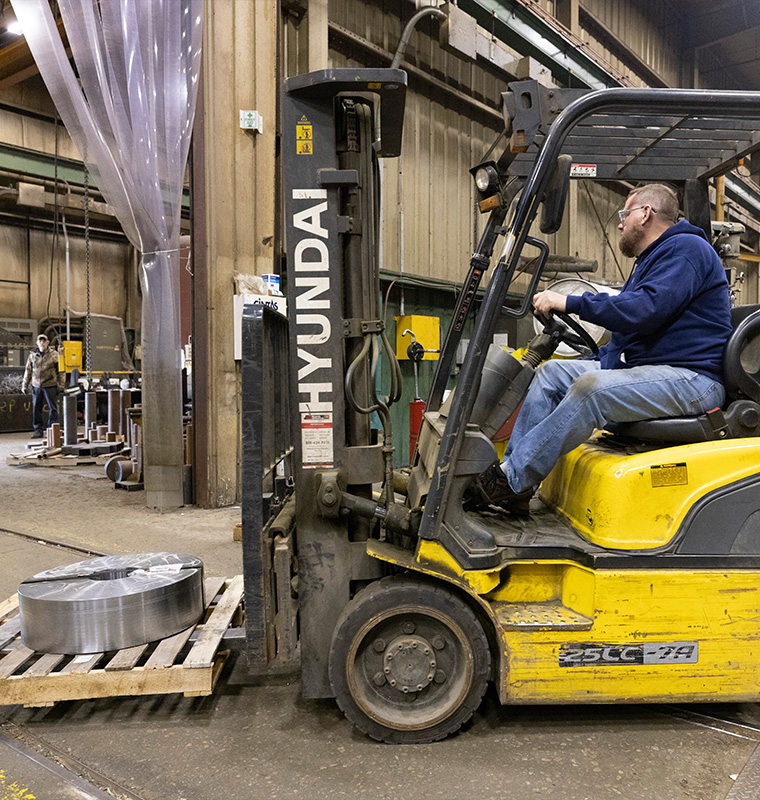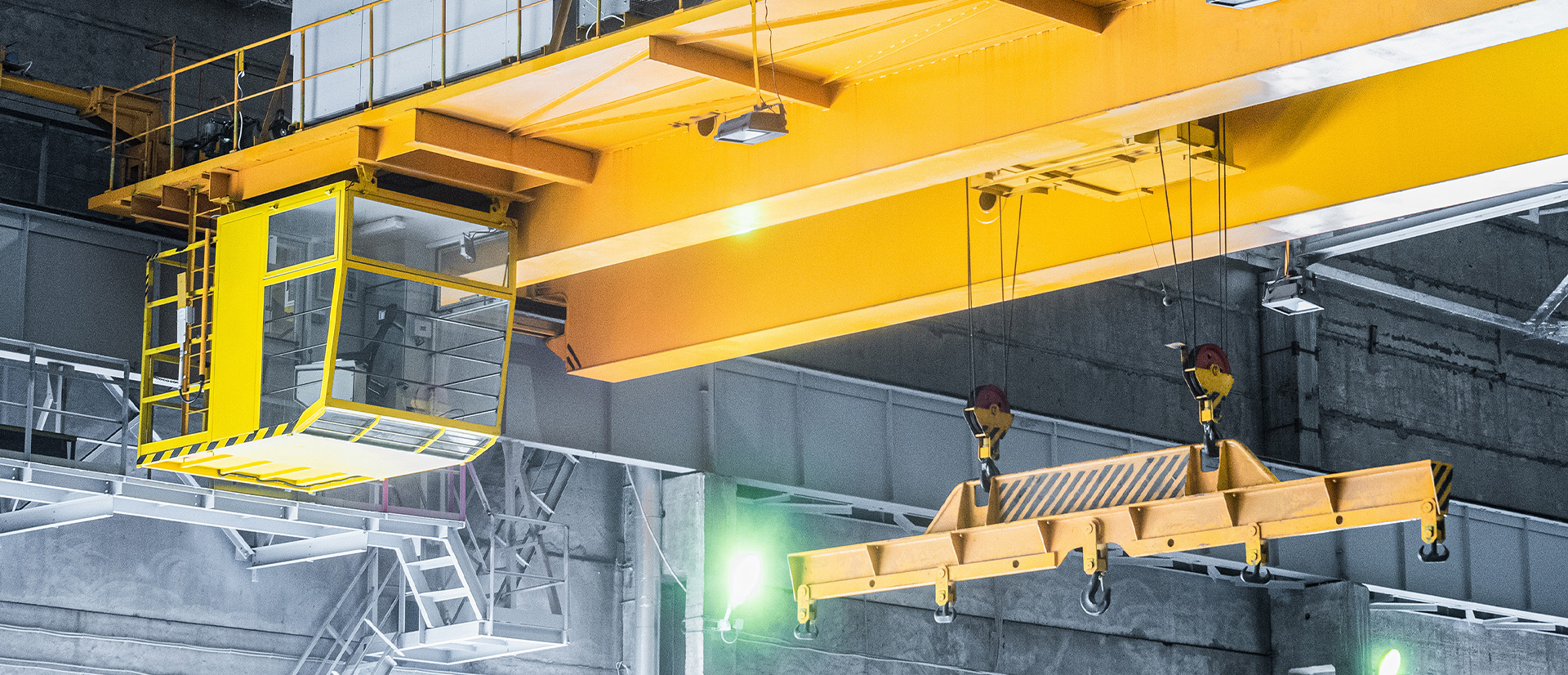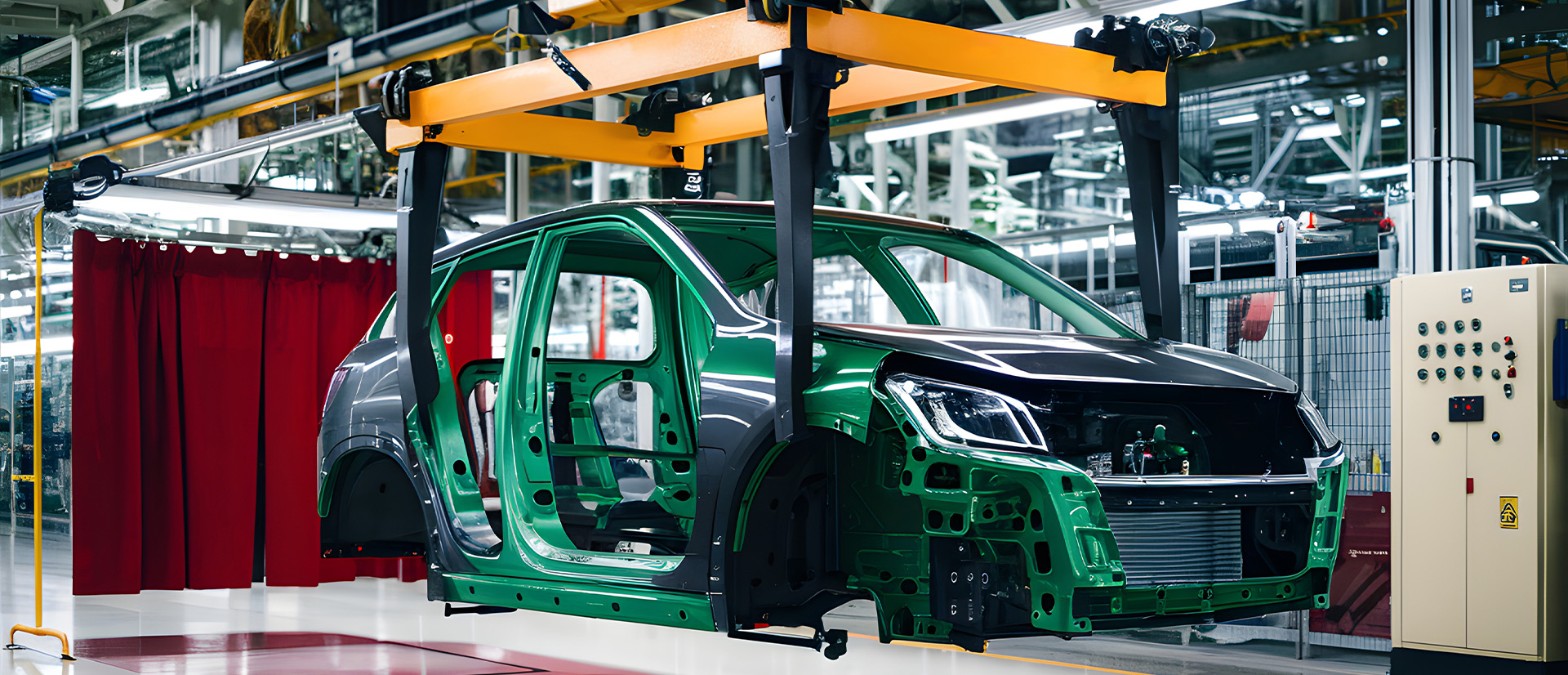The Role of Overhead Cranes in Modern Manufacturing
Manufacturing has always been at the heart of human progress, with each era characterized by innovative techniques, tools, and machinery. In recent times, overhead cranes have emerged as pivotal components in modern manufacturing. These high-powered machines have revolutionized industries from steel production to the automotive sector, providing fascinating insights into the power of technology and innovation.
Overhead Cranes in the Modern Era of Manufacturing
Overhead cranes have evolved significantly since their origin in the Industrial Revolution, where they were primarily used to transport heavy items in manufacturing facilities. Initially powered by steam engines, overhead cranes have transitioned through several stages, incorporating electric motors and hydraulic systems for improved efficiency and control.
Modern overhead cranes are equipped with advanced computer systems, allowing for precise movements and increased safety features. They can now handle much larger capacities, sometimes lifting hundreds of tons, and are integral to industries such as shipping, construction, and automotive manufacturing.
The evolution of overhead cranes reflects the advancements in engineering and material sciences, making them more reliable and essential in today’s heavy lifting tasks. Today, they are integral to many sectors, thanks to their versatility, efficiency, and safety.
Modern Overhead Cranes: Adaptable Designs for Diverse Needs
Overhead crane machines have been adapted over the years to suit the diverse requirements of modern manufacturing, with designs tailored to specific needs and operational environments.
Today’s overhead cranes can be equipped with varying features tailored to meet the unique needs of different industries. Overhead crane maintenance and upkeep is also a lot easier than in the early days, and you can find “overhead crane manufacturers near me” quite easily (Zenar is one trusted crane corp!). And with crane automation, manufacturing velocity can be improved with better safety and regularity of overhead crane systems.
For instance, in the steel production industry, cranes with high load-bearing capacities and heat-resistant properties are employed to handle and transport heavy steel components. In the auto industry, precision and speed are paramount, and overhead cranes are often equipped with advanced automation and control systems for precise assembly line operations.
Overhead Cranes in Various Manufacturing Industries
Overhead cranes stand as a cornerstone within a multitude of manufacturing industries, where they play a crucial role in the movement and positioning of substantial loads. Their ability to maneuver materials through confined spaces not only maximizes floor space but also significantly bolsters efficiency and workplace safety. Overhead cranes are employed in various sectors—ranging from automotive to aerospace, steel production to shipbuilding—and they have a huge impact on the day-to-day operations and overall productivity of these industries.
For example, the steel production and auto industry have seen significant progress due to the involvement of overhead cranes. These sophisticated machines have not only enhanced operational efficiency but also contributed to safer working environments and improved product quality.
Overhead Cranes in Steel Production
The steel industry, known for its demanding and rigorous processes, heavily relies on the capabilities of overhead cranes. These machines play a pivotal role in the production stages, handling the movement and operations associated with heavy materials and molten steel.
Handling Heavy Loads and High Temperatures: Overhead cranes in the steel industry are uniquely designed to handle heavy loads and endure high-temperature environments. They are used for tasks such as moving raw materials, transporting molten steel, and handling finished products. These cranes are often equipped with special features such as heat shielding and cooling systems to withstand the extreme temperatures associated with molten steel.
Enhancing Efficiency and Safety: The use of overhead cranes has revolutionized the steel industry by drastically reducing human effort and enhancing safety. Manual handling of heavy and hot materials poses significant risks, and overhead cranes mitigate these risks by automating lifting and moving processes. Furthermore, the automation of these processes increases production rates, leading to higher productivity and profitability.
Overhead Cranes in the Auto Industry
Overhead cranes have a profound impact on the auto industry, serving as the backbone of many assembly line operations. They play a critical role in lifting and transporting heavy parts, facilitating seamless production processes, and aiding in vehicle maintenance.
Streamlining Assembly Line Operations: In auto manufacturing, assembly lines are the heart of the production process. Overhead cranes contribute significantly to the efficiency of these operations. They are used for moving heavy components such as engines and bodies from station to station, ensuring a continuous flow of production.
Precision and Speed: Overhead cranes in the auto industry often incorporate advanced automation and control systems. These technologies allow for precise positioning of components and rapid movement along the assembly line. This not only speeds up the production process but also reduces the risk of errors, contributing to the overall quality of the finished vehicles.
Maintenance Support: Beyond assembly line operations, overhead cranes also support maintenance tasks in the auto industry. They facilitate the safe and efficient removal and installation of heavy vehicle parts during maintenance, reducing downtime and improving the longevity of the vehicles.
Overhead Cranes in Aerospace Manufacturing
The aerospace industry is known for manufacturing large, complex components such as wings, fuselage sections, and engines, which require precise handling and placement. Overhead cranes are indispensable in these processes, providing the necessary lifting and positioning capabilities.
Precision and Safety: Overhead cranes in aerospace manufacturing are often equipped with advanced automation systems that allow for precise positioning of components. These systems can be programmed to move along predefined paths, ensuring that components are accurately placed every time. This not only minimizes the risk of damage to the parts but also enhances worker safety by reducing the need for manual handling.
Large Load Capacities: The large size and weight of components in aerospace manufacturing demand cranes with high load capacities. Overhead cranes can be designed to handle these heavy loads, making them essential for the manufacturing process of large aircraft and spacecraft components.
Overhead Cranes in Shipbuilding
Shipbuilding is another industry where overhead cranes play a significant role. From constructing the hull to installing engines and other equipment, overhead cranes are involved in almost every step of the shipbuilding process.
Heavy Lifting and Assembly: In shipbuilding, overhead cranes are used to lift and assemble large ship sections. These cranes have the capacity to handle heavy loads, allowing for the assembly of large ships that can weigh thousands of tons.
Flexibility and Adaptability: Overhead cranes in shipyards are often designed to be flexible and adaptable to accommodate the various tasks involved in ship construction. Some cranes are equipped with multiple hoists that can be used independently or in tandem, allowing for more complex lifting operations.
Overhead Cranes in Defense Production
The defense industry involves the production of a wide variety of equipment, from armored vehicles to missiles and aircraft. Overhead cranes are crucial in many of these manufacturing processes.
Versatile Applications: In defense production, overhead cranes are used for a wide range of applications, such as assembling heavy vehicle components, handling missiles and other weapons, and even loading equipment onto transport vehicles. The versatility of overhead cranes makes them a valuable asset in the defense industry.
Enhanced Safety: Overhead cranes also contribute to safety in defense production. Many defense products are sensitive and require careful handling. Overhead cranes provide a safe way to move these items, reducing the risk of accidents and damage.
Zenar: Your Trusted Partner for Overhead Crane Services
Looking for a crane corporation to help with crane support, crane maintenance, crane parts, and all crane needs? When it comes to overhead crane services, Zenar Corporation stands out as a trusted partner. We are one of the top overhead crane manufacturers in USA. Established in Oak Creek, WI, Zenar provides comprehensive crane services, including design, manufacturing, testing, installation, and maintenance. Our commitment to customer satisfaction, innovation, and quality has made us a preferred choice for many industries.
We take pride in being an American-owned and operated company, and we are currently expanding our team. If you have a passion for the industry and a desire to grow with a future-facing company, we invite you to join us at Zenar.
Zenar can help your manufacturing firm with custom overhead crane design and support. Contact us today to learn more about our services and career opportunities.
Read
More
Articles

Overhead Cranes vs. Forklifts
When it comes to material handling, efficiency, safety, and cost-effectiveness are always top concerns in any industrial environment. Two of the most common equipment types used in these settings are overhead cranes and forklifts.

Sustainability in Crane Manufacturing
The construction industry is a cornerstone of global development but is also one of the largest consumers of energy and producers of greenhouse gas emissions.

Elevate Automotive Operations with Custom Overhead Cranes
Efficiency and precision are top priorities in the automotive industry. Overhead cranes play a crucial role in streamlining operations, from the assembly line to the repair shop. These powerful tools not only enhance productivity but also ensure safety, making them indispensable in modern automotive facilities.